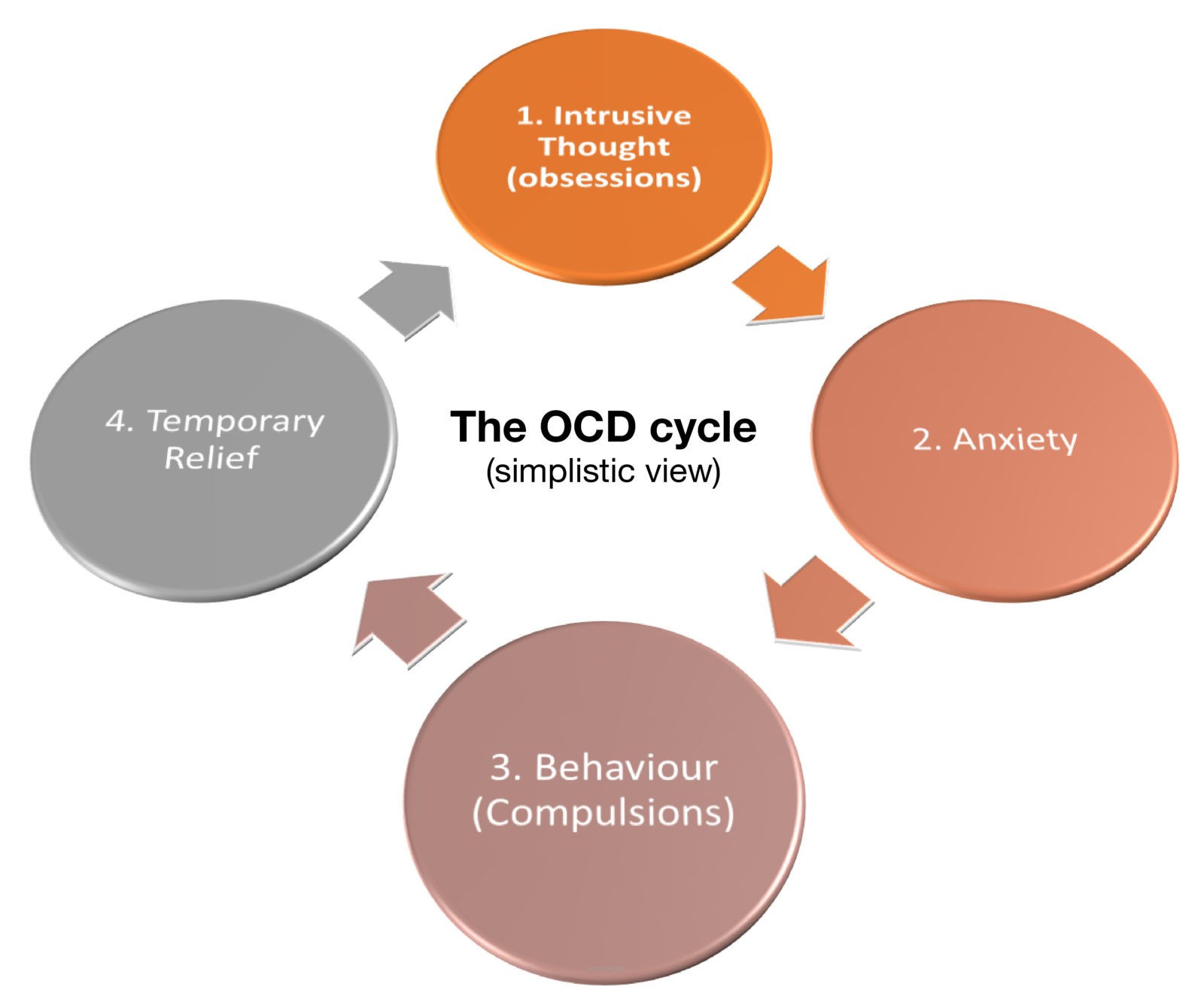Understanding OCD Debilitating: A Journey Through Challenges And Solutions
Have you ever felt like your mind is stuck in an endless loop, replaying the same thoughts over and over again? That's what it's like for millions of people living with OCD debilitating. Obsessive-Compulsive Disorder, or OCD, isn't just about liking things neat or double-checking if the door is locked. For some, it's a daily battle that affects every aspect of their life. But don't worry, we're here to break it down for you in a way that's easy to understand and super relatable.
Now, let's get one thing straight—OCD debilitating isn't something you can just "snap out of." It's a real mental health condition that requires attention, understanding, and sometimes professional help. In this article, we'll dive deep into what makes OCD so challenging, how it impacts people's lives, and most importantly, what you can do about it. So grab your favorite drink, get comfy, and let's chat about this important topic.
Living with OCD debilitating can feel like carrying around a heavy backpack full of rocks everywhere you go. The good news? There are ways to lighten the load, and we're here to guide you through it. Whether you're someone dealing with OCD or know someone who is, this article has got you covered. Let's get started!
- Understanding The Iconic Career Of Robert De Niro
- Passion Twist Bob Hairstyles A Trendy And Versatile Look For Every Occasion
What Exactly is OCD Debilitating?
Let's start with the basics. OCD debilitating refers to the severe form of Obsessive-Compulsive Disorder where intrusive thoughts and compulsive behaviors take over a person's life. It's not just about liking things clean or being extra cautious—it's a mental health condition that affects how someone thinks and acts. Imagine having a thought that you can't shake off no matter how hard you try, and then feeling compelled to perform certain actions to ease the anxiety. That's OCD in action.
For many, OCD debilitating means spending hours a day on rituals or compulsions that interfere with work, school, relationships, and personal well-being. It's like being trapped in a cycle that feels impossible to break. But hey, don't lose hope! With the right strategies and support, people with OCD can learn to manage their symptoms and live fulfilling lives.
Common Symptoms of OCD Debilitating
1. Intrusive Thoughts
One of the hallmark features of OCD debilitating is intrusive thoughts. These are unwanted, distressing thoughts that pop up in your mind without warning. They can be about anything—contamination, harm, symmetry, or even taboo subjects. For example, someone might have a recurring thought about accidentally harming someone they love, even though they would never do such a thing. These thoughts can be so intense that they cause significant anxiety and distress.
- James And Jennifer Garner A Deep Dive Into Their Relationship And Careers
- Kilmer Of Films A Deep Dive Into The Versatile Career Of Val Kilmer
2. Compulsions
Compulsions are repetitive behaviors or mental acts that people with OCD feel driven to perform in response to their intrusive thoughts. These can include things like excessive hand-washing, checking locks multiple times, counting, or arranging items in a specific way. The goal of these compulsions is to reduce the anxiety caused by the intrusive thoughts, but unfortunately, they often provide only temporary relief.
Here's a quick list of common compulsions:
- Repeatedly washing hands or cleaning
- Checking things over and over (locks, appliances, etc.)
- Counting or repeating certain words or phrases
- Rearranging objects to make them "just right"
How OCD Debilitating Affects Daily Life
Living with OCD debilitating can feel like walking through quicksand. Simple tasks that others take for granted can become monumental challenges. Imagine spending two hours in the morning just getting ready because you have to perform a specific ritual before leaving the house. Or missing out on social events because the thought of being in a crowded space triggers overwhelming anxiety. It's not just about the time spent on compulsions—it's about the emotional toll it takes on a person's mental health.
People with OCD debilitating often experience feelings of isolation, frustration, and helplessness. They may avoid certain situations or places that trigger their symptoms, which can lead to a shrinking world where they feel trapped. But here's the thing—OCD doesn't define who you are. With the right tools and support, you can reclaim your life and break free from the chains of OCD.
Causes of OCD Debilitating
So, what causes OCD debilitating? Well, the truth is, scientists haven't found a single cause. Instead, it's thought to be a combination of genetic, neurological, behavioral, cognitive, and environmental factors. Some people may have a family history of OCD, while others may develop it after experiencing a traumatic event or during times of extreme stress.
Research has also shown that certain areas of the brain, such as the basal ganglia and the prefrontal cortex, may function differently in people with OCD. Additionally, imbalances in neurotransmitters like serotonin can contribute to the development of OCD symptoms. But hey, don't let all this science talk scare you! The important thing is that OCD is treatable, and there are effective therapies and medications available.
Treatment Options for OCD Debilitating
1. Cognitive Behavioral Therapy (CBT)
CBT, specifically Exposure and Response Prevention (ERP), is one of the most effective treatments for OCD debilitating. ERP involves gradually exposing a person to the situations or objects that trigger their anxiety while preventing them from performing their usual compulsions. Over time, this helps reduce the anxiety associated with the triggers and teaches the person that they can tolerate the discomfort without giving in to their compulsions.
2. Medications
In some cases, medications like selective serotonin reuptake inhibitors (SSRIs) may be prescribed to help manage OCD symptoms. These medications work by increasing the levels of serotonin in the brain, which can help reduce anxiety and improve mood. However, it's important to work closely with a healthcare professional to find the right medication and dosage for your specific needs.
3. Support Groups
Joining a support group can be incredibly beneficial for people with OCD debilitating. It provides a safe space to share experiences, learn from others, and gain support from people who truly understand what you're going through. Plus, it's a great way to realize that you're not alone in this journey.
Breaking the Stigma Around OCD Debilitating
One of the biggest challenges people with OCD debilitating face is the stigma surrounding mental health. Too often, OCD is portrayed in movies and TV shows as a quirky or humorous trait, which can downplay the seriousness of the condition. It's time to change that narrative and start talking about OCD in a way that promotes understanding and compassion.
Education is key to breaking the stigma. By sharing accurate information about OCD debilitating and its impact on people's lives, we can help reduce the shame and embarrassment that many sufferers feel. Encourage open conversations about mental health and remind people that seeking help is a sign of strength, not weakness.
Self-Care Tips for Managing OCD Debilitating
While professional treatment is essential for managing OCD debilitating, there are also things you can do on your own to help reduce symptoms and improve your overall well-being. Here are a few self-care tips to keep in mind:
- Practice mindfulness and meditation to help stay grounded in the present moment.
- Engage in regular physical activity to boost your mood and reduce stress.
- Get plenty of restful sleep to support your mental and physical health.
- Eat a balanced diet rich in nutrients to fuel your body and mind.
- Connect with loved ones and build a strong support network.
When to Seek Professional Help
It's important to recognize when it's time to seek professional help for OCD debilitating. If your symptoms are interfering with your daily life, causing significant distress, or making it difficult to function, don't hesitate to reach out to a mental health professional. They can provide a proper diagnosis and create a personalized treatment plan tailored to your needs.
Remember, asking for help is a courageous step towards healing. You don't have to face this battle alone—there are caring professionals who want to support you on your journey to recovery.
Conclusion: Taking Action Against OCD Debilitating
Living with OCD debilitating can be tough, but it's not something you have to face alone. By understanding the condition, recognizing its symptoms, and exploring treatment options, you can take control of your life and break free from the grip of OCD. So, what's next? Here's what you can do:
- Reach out to a mental health professional for a proper diagnosis and treatment plan.
- Join a support group to connect with others who understand what you're going through.
- Practice self-care strategies to manage symptoms and improve your overall well-being.
- Share this article with someone who might benefit from the information.
Remember, you're not defined by your OCD. You're a strong, capable individual with so much to offer the world. Keep pushing forward, and don't forget to celebrate every small victory along the way. You've got this!
Table of Contents
- What Exactly is OCD Debilitating?
- Common Symptoms of OCD Debilitating
- How OCD Debilitating Affects Daily Life
- Causes of OCD Debilitating
- Treatment Options for OCD Debilitating
- Breaking the Stigma Around OCD Debilitating
- Self-Care Tips for Managing OCD Debilitating
- When to Seek Professional Help
- Conclusion: Taking Action Against OCD Debilitating



Detail Author:
- Name : Ora Dibbert
- Username : prosacco.johnathan
- Email : rodriguez.carrie@yahoo.com
- Birthdate : 1978-10-18
- Address : 1044 Lubowitz Station Suite 090 Bartholomeshire, NH 54330
- Phone : 1-347-561-0448
- Company : Yost-Harvey
- Job : Hazardous Materials Removal Worker
- Bio : Et sunt id sed ut. Velit sed nam quia aut optio. Expedita ut atque omnis totam ut.
Socials
tiktok:
- url : https://tiktok.com/@tate.fahey
- username : tate.fahey
- bio : Esse eaque ut ab minima quo totam ad.
- followers : 5683
- following : 1603
facebook:
- url : https://facebook.com/tate8822
- username : tate8822
- bio : Itaque omnis et nisi iure. Quia ut consequatur sed consectetur laudantium.
- followers : 4811
- following : 1465
twitter:
- url : https://twitter.com/tate.fahey
- username : tate.fahey
- bio : Eos delectus qui ullam doloremque ea est laboriosam. Aliquam quisquam qui libero animi quia. Quas ratione corrupti est sed ut animi pariatur.
- followers : 4425
- following : 2858